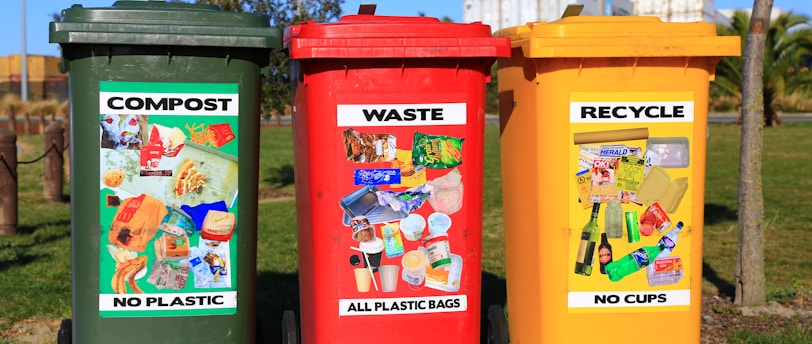Waste Management for Sustainable Future
World Environment Day Special
CURRENT AFFAIRSARTICLEESSAY
6/5/2023


Waste management is a critical aspect of creating a sustainable environment for ourselves as well as for our future generations. As the world population continues to grow and consumption patterns evolve, the management of waste becomes increasingly important. In this article, we shall try to explore the concept of waste management, its significance, challenges faced, and strategies for sustainable waste management practices.
Waste management refers to the collection, transportation, processing, recycling, and disposal of waste materials. Both solid and liquid waste generated by residential, commercial, industrial, and healthcare activities need to be disposed in such a manner that the environmental impact of waste can be minimized, health risks can be reduced, resources can be conserved, and sustainable practices can be promoted.
Waste management is crucial for several reasons. Most important reasons may be as follows:
1. Improper waste disposal can lead to environmental pollution, soil contamination, and water pollution, posing significant risks to ecosystems and human health.
2. Effective waste management reduces the consumption of natural resources, conserves energy, and minimizes greenhouse gas emissions, contributing to the fight against climate change.
3. It provides economic opportunities through waste recovery, recycling, and the creation of green jobs.
Waste management faces several encounters that obstruct sustainable practices. One of the primary challenges is the increasing volume of waste generated globally, driven by population growth and urbanization. Inadequate infrastructure, limited financial resources, and lack of public awareness and participation pose additional challenges. Improper waste segregation, limited recycling facilities, and the presence of hazardous waste complexes these difficulties. Furthermore, the globalization of waste has led to challenges in the trans-boundary movement of waste materials.
To address the challenges of waste management and foster sustainability, several strategies can be implemented. Some of these may be as follows:
1. Minimization of waste generation through conscious consumption, product design for recyclability, and the promotion of reusable and durable goods.
2. Waste segregation at the source enables efficient sorting of different waste streams, facilitating recycling and proper disposal. Public education and awareness campaigns are crucial for encouraging individuals and communities to adopt waste segregation practices.
3. Recycling and resource recovery play a vital role in waste management. Establishing robust recycling infrastructure and promoting recycling programs can reduce the amount of waste sent to landfills or incineration. Recycling not only conserves resources but also reduces energy consumption and greenhouse gas emissions associated with the production of virgin materials.
4. Composting organic waste is an effective strategy to reduce landfill burden and produce nutrient-rich soil amendments. Composting diverts organic waste from disposal, mitigates greenhouse gas emissions from anaerobic decomposition, and supports sustainable agriculture.
Moreover, waste-to-energy technologies can be employed to convert non-recyclable waste into usable energy. These technologies, such as incineration or anaerobic digestion, help reduce the volume of waste while generating renewable energy.
Finally, sustainable waste management requires government policies and regulations that support waste reduction, recycling, and proper disposal. Governments should encourage the development of waste management infrastructure, provide financial incentives for recycling initiatives, and enforce strict regulations on waste handling and disposal practices.
Effective waste management is indispensable for creating a sustainable future. By implementing strategies such as waste reduction, recycling, composting, and waste-to-energy technologies, we can minimize environmental impacts, conserve resources, and reduce greenhouse gas emissions. Collaboration between governments, businesses, communities, and individuals is crucial to achieving sustainable waste management practices and creating a cleaner and healthier planet.
